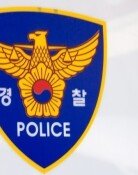Shocked by ferry disaster, companies put priority on safety
Shocked by ferry disaster, companies put priority on safety
Posted April. 24, 2014 01:45,
In the wake of the tragic sinking of the ferry Sewol last week, a growing number of companies are stepping up security inspection.
Jeju Air, a low cost carrier, said on Wednesday that it has decided to reduce workload by granting pilots the "right to demand adjustment of flight hours" as part of efforts to improve the safety of its flights. This allows pilots to demand the air carrier to adjust flight hours by considering their own fatigue levels.
The company plans to preferentially give the privilege to pilots aged 60 or older, before expanding its application to others in consideration of situation. In order to reduce manpower shortage arising from the introduction of the system, it plans to hire 60 new and experienced pilots by years end. A Jeju Air source said, We have put in place measures to reinforce flight safety after the sinking of the Sewol.
On Thursday last week, the day after the Sewols sinking, Asiana Airlines also instructed all executives and staff members to beef up safety inspection in a move to improve safety. The instruction called for strengthening emergency communication systems and thorough reporting in the event of abnormal conditions of airplanes during flights. Asianas airplane maintenance and flight departments are also conducting safety inspections on their own. In tune with airliners move to reinforce safety standards, the Land, Transportation and Infrastructure Ministry, which is responsible for aviation safety, has been conducting special safety oversight activities from last Wednesday to end-May.
Air carriers are not the only companies that are beefing up safety inspection. LG Display has decided to significantly expand safety education facilities at its Paju Plant during the first half. At the facilities, employees can take diverse hands-on training against accidents by using fire extinguishers and dust-free garments. The company also plans to expand the scope of employees taking its safety training that has focused on manufacturing staff to include office workers. Hyundai Motor Group plans to enhance safety manuals primarily for automobile production plants and steel mills, while Samsung Group has decided to inspect the need to replace aging facilities at its workplaces in provincial regions.
Headline News
- Med professors announce intention to leave hospitals starting Thursday
- Bridge honoring Sgt. Moon Jae-sik unveiled in Pennsylvania
- Chief of Staff Chung tells presidential secretaries to stay away from politics
- US FTC bans noncompete agreements
- N. Korea launches cyberattacks on S. Korea's defense companies







